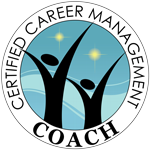Ask yourself:
- Have you ever sat around and wondered if your career is on track? Absolutely.
- Have you been overlooked for a promotion or told during your annual review you need more experience? Probably.
- Are you too busy to even think about exploring a new company, new position, new location? Definitely!
You are not alone. We all get busy, and frankly too distracted to seriously consider career advice or change. Developing, and nurturing your identity in the corporate space can often be a tightrope while creating and maintaining your image and integrity. Preparing yourself to take advantage of emerging opportunities takes some planning and initiative. It’s mentally and emotionally exhausting.
Career planning is a personal plan. Knowing when to seek career advice is often intuitive. You are determined to focus your career goals around your unique skills and ambitions as you should but sometimes you need help; another set of eyes and ears to really give you advice you have not considered.
In every economic industry, including pharmaceutical, biotech and medical device, there are stages in anyone’s career that give pause. Measure your current situation and make the best decision in light of actual circumstances. Plans fail for lack of counsel, but with many advisors they have a better chance of succeeding.
Here are 4 brief tips to consider and digest when thinking about a career change:
- Seek Advice from an Acquaintance – Select someone who knows you well but not a real close friend. Why? Because they can give you an objective perspective not influenced by emotion, or personal feelings without hurting your feelings and telling you what you want to hear. This person could be a neighbor, college friend/alumni, project teammate.
- Contact a Former Supervisor – These individuals, while not directly involved with your current job, know your skills and competencies and can give you good advice having worked with you directly. It has been our experience, these individuals see your potential and will not hesitate to honestly describe your strengths and weaknesses
- Call a Relative or Extended Family Member – Often a relative, cousin, aunt or uncle tend to be very honest with you after discussing your situation and circumstances. Studies have proven that family members give resourceful advice, honest advice, because they have your best interest at heart.
- Discuss with your Executive Recruiter and/or Financial Advisor – When you make a career or life change, financial considerations are always near the top of the list. You certainly want to make the best decision in financial longevity and security. Buying a car is a temporary yet emotional decision, but changing jobs and/or careers is life changing. It not only affects you, but also affects a spouse, high school and college bound children, or even aging parents. A 15 minute discussion can be worth a lifetime of mentorship.
Every career move involves a certain amount of risk. Weighing all the factors are important; however, risk in anything requires exploring and evaluating options. Seek out advice. You will feel better when you do.
Make it count!
Steve Kane

